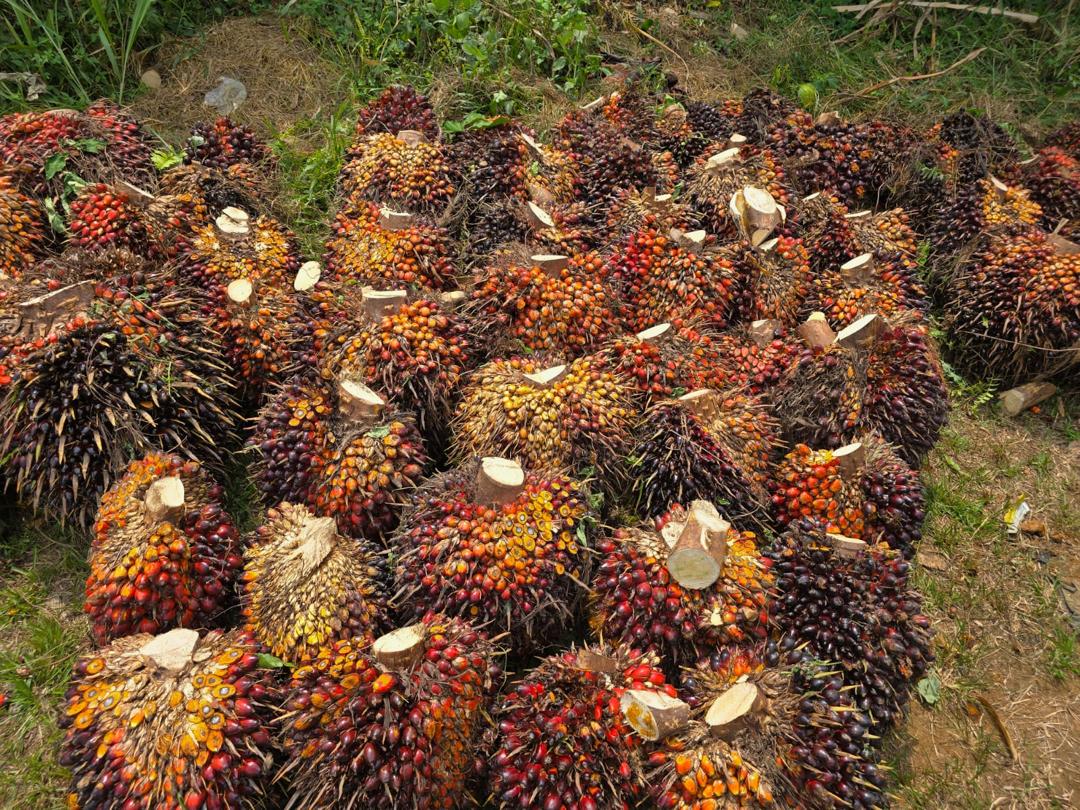By Leocadia Bongben
The World Wide Fund for Nature (WWF) has embarked on a project to help smallholder farmers produce sustainable palm oil.
Dubbed ‘Capacity Building, Technical Support for Smallholders, and Improvement of Sustainability in the Palm Oil Sector,’ the project is carried out in Ngwei district in the South region.
With tropical countries facing several challenges, the project is being carried out against the backdrop of palm oil, which has dominated the world vegetable oil market for over 30 years and created a substantial economic sector.
In Cameroon, this sector has grown steadily, becoming important over the years with the ever-greater ambitions to expand planted areas to compensate for a structural production deficit in the national palm oil production, pegged at around 150,000 metric tons for almost ten years.
The Ministry of Agriculture recently declared that three palm oil extraction facilities would be built, one of which would be located in the Ngwei district. Here, palm oil is the main agricultural crop, and its exploitation structures determine the local socio-economic environment, which largely explains the presence of many small-scale producers.
However, developing oil palm cultivation in Ngwei unveils concerns about nature conservation and preserving significant biodiversity. The multiplicity of palm growers is leading to urban sprawl and the retreat of the forest, which is taking away local biodiversity.
Against this backdrop during the first phase, WWF-Cameroon supported the project targeting small-scale oil palm growers in Ngwei.
According to Roberty Essama, the project coordinator, farmers employ methods that are not very sustainable, such as throwing waste into the community’s streams, leading to environmental pollution and endangering fish and biodiversity. They also do not consider high conservation values when planting. Farmers therefore require capacity-building capacity to increase production, being more intentional in environmental protection, Essama added.
Deforestation occurs when all the trees are removed from the farm, impacting forests. Farmers lack contemporary techniques to maintain the high conservation qualities of trees when they establish plantations.
“They can plant sustainable palm oil with the environmental agreements of the partners, who have more sustainable production chains. And with these partners, they will be able to better profit from their production units,” Essama said.
Essama said the scheme encourages smallholders to use existing plantations more effectively instead of managing and starting new ones because the latter are underutilized and yield little.
Farmers can acquire new training modules on efficient plant management practices to raise the value of their existing plants. Given the importance of planting and management strategies, some examples include plantation renewal, the introduction of novel varieties, and effective planting management practices.
“One of the things that will ensure the durability on the ground are these partnerships that link smallholders to the big companies. They have programs to support small producers,” Essama said.
He argued that for agro-industries to be connected to the full sustainability chain, they had a social or societal obligation to assist their small producers. They will profit from the company’s logistics support and best practices available, including agricultural inputs and technical assistance, as technicians will help these small producers manage their plantations more effectively daily.
Depending on the alliances formed with agro-industries, the project’s second phase will proceed in 2025, Essama said, adding that more funds will be negotiated.

